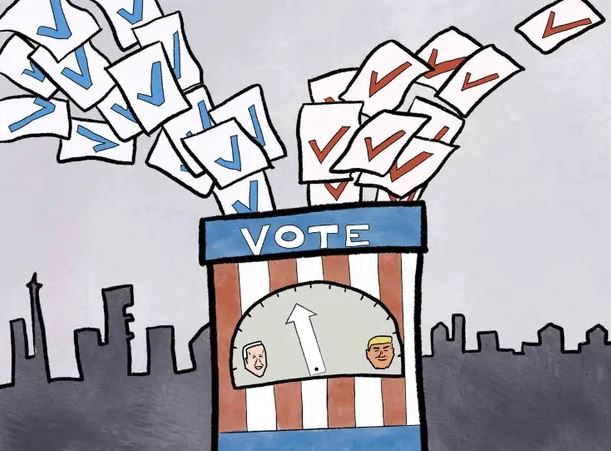Electoral democracy VS Constitutional democracy


This topic of “Electoral democracy VS Constitutional democracy” is important from the perspective of the UPSC IAS Examination, which falls under General Studies Portion.
Context
The recently concluded assembly elections
- It has some larger implications that one needs to take note of.
- The consequences are not confined to the five states where the electoral battle was fought.
What the editorial is about?
- Electoral aspects and the non-electoral dimensions of democracy.
The battle between electoral democracy and constitutional democracy
- In much of the world, the electoral aspects of democracy are now being used to undermine the non-electoral dimensions of democracy.
- This process can be called the battle between electoral democracy and constitutional democracy.
- In this day and age, democracies don’t normally die as a result of military or executive coups.
- Processes internal to the democratic system can severely weaken democracy itself, even causing its collapse.
- Today, such contradictions exist in Turkey, Poland, Hungary, Russia, to name just a few countries.
Illiberal Democracy
- It (such contradictions) has been differently labelled as right-wing populism, majoritarianism or illiberal democracy, the core of this politics consists of the following proposition.
- If we can get elections to legitimate our platform on behalf of a racial/ethnic/religious majority, we can use electoral power to attack – via legislation — the idea of minority rights and undermine – also via legislation — standard democratic freedoms such as the freedom of expression, freedom of association and freedom of religious or cultural practice.
- A freely conducted vote can thus be used to cripple the other freedoms that modern democracies also value.
- A detailed look into the victory in many states in the recently concluded assembly elections shows that this victory belongs to this genre of democratic politics.
Electoral democracy can be a vehicle of an assault on constitutional democracy
- The triumph of such politics can now be used in three ways
- in executive decrees
- in legislative chambers to formulate laws
- on the street via vigilante forces
- Though minority rights are enshrined in India’s Constitution, election victories can now be used to create laws or government policies that begin to attack precisely those rights.
- That is one of the meanings of how electoral democracy can be a vehicle of an assault on constitutional democracy.
Will of the judiciary to play its constitutionally assigned role
- The courts are the final custodian of constitutional proprieties in a democracy and can frustrate a legislative or executive attack on the Constitution.
- But that depends on whether the judiciary is willing to play its constitutionally assigned role.
- Judicial interpretation can go either way – in favour of the government or against it.
Roots of these contradictory aspects of democracy
- These contradictory aspects of democracy do have older roots.
Some examples
Democracy of America’s southern states
- One can go all the way back to some tendencies that emerged in the democracy of America’s southern states in the 1880s, which lasted till the 1960s.
- America’s Blacks lost their equality as well as franchise, and the courts did not invalidate a majoritarian attack on their rights.
Germany
- The history of 1930s Germany is also viewed as an example of how democracy undermined democracy.
Sri Lanka
- As early as the 1950s, Sri Lanka imposed a “Sinhala only” policy on the Tamil minority of the country.
- In the 1980s, a civil war was born as a consequence.
Malaysia
- In Malaysia, following roughly similar policies, the Malay majority side-lined the Chinese minority.
- Internal tensions and aggravations rose but, unlike Sri Lanka, a civil war did not.
- The minorities pursued their interests by entering into coalitions with political parties within the larger parameters of the polity.
Conclusion
- The electoral aspect of the democracy can affect the non-electoral aspect of the democracy. It has larger implications for democracy.
Practice Question for Mains
- In much of the world, the electoral aspects of democracy are now being used to undermine the non-electoral dimensions of democracy. Substantiate. (250 Words, 15 Marks)
Referred Sources

